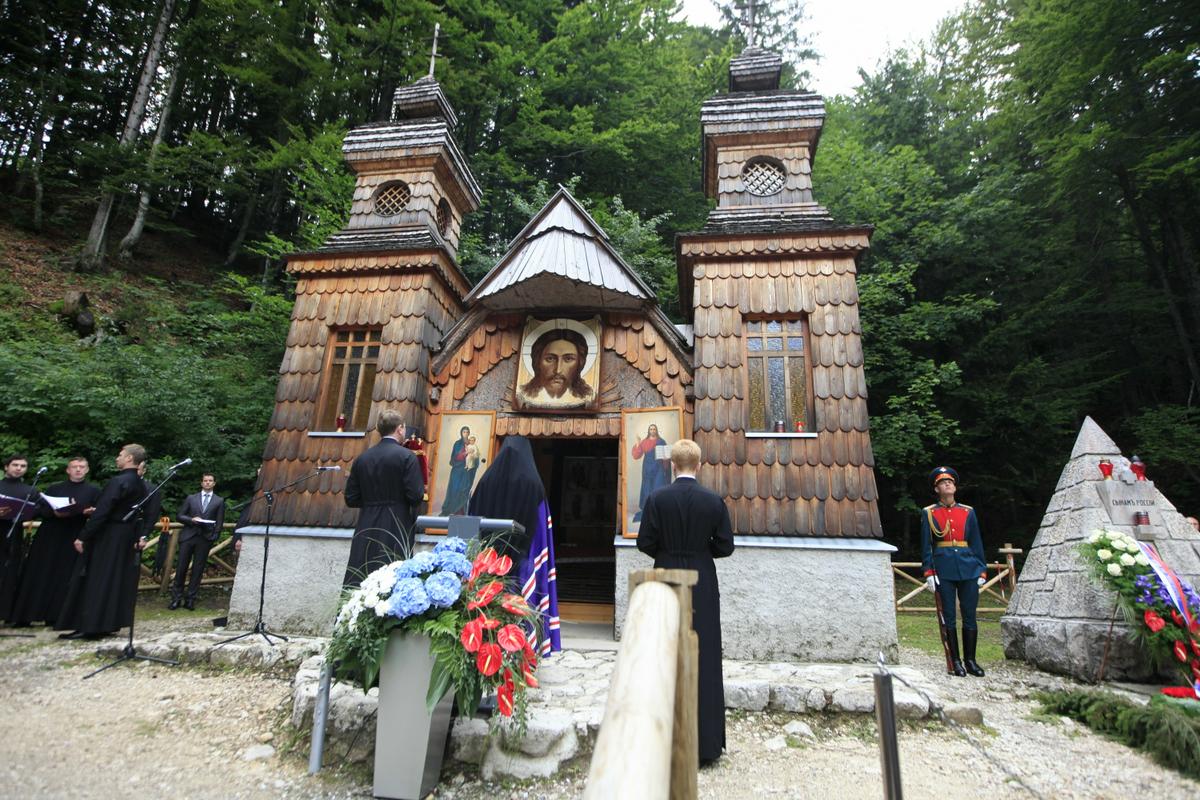Late in the afternoon, Putin will unveil a memorial to Russian soldiers who lost their lives in the two World Wars at the Žale cemetery in Ljubljana. In the evening he will attend A dinner at Brdo near Kranj organized by the Slovenian political leadership. The mostly commemorative nature of the visit has been emphasized.
The Russian Ambassador in Slovenia Doku Zavgajev explained the importance of the Russian Chapel: "It has grown into a symbol of comradeship, trust, good relations and deep roots of cooperation between the nations."
The president of the Slovenia-Russia Society Sašo Geržina considers that the Russian Chapel is connecting Slovenia and Russia.
After the ceremony below Vršič, Putin will unveil a memorial to Russian soldiers killed in Slovenia during the First and the Second World War. Ambassador Zavgajev explained that uncomplete data show that there were 40,000 prisoners of war on the Slovenian territory, building a number of mostly military facilities. The fate of many of those prisoners of war remains unknown. During the Second World War many Russian soldiers joined partisans in their fight against the occupying forces.
The memorial is made up of eight pillars symbolising the eight-year duration of both world wars. There is a crane atop each of the pillars, and the names of 3,000 soldiers are chiselled into the pillars.
As the visit by the Russian President will be of short duration, and of mainly commemorative nature, no discussions about economy or politics are expected.
The representatives of the Ukrainians living in Slovenia have announced rallies to protest Putin's visit. Janez Horvat, Mayor of Kranjska Gora, and Jurij Meteljov, Director of the Russian Scientific and Cultural Centre, have emphasized the rich cultural programme at the occasion of the visit.
G. C. (MMC), T. G. (RA SLO)
Translated by G. K.


































































